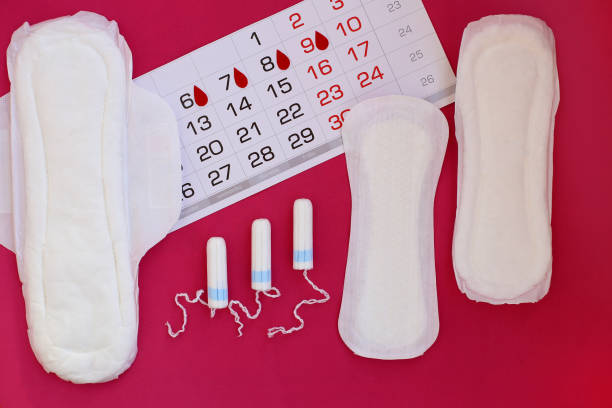Having sex typically does not directly delay your period, but factors like stress, hormonal changes, or pregnancy can impact its timing. If your period is late, taking a pregnancy test is important. Other causes may include illness, medications, or lifestyle changes. Consult a doctor if irregularities persist.
Introduction
Hello everyone ! Welcome to SasVibe. Many women wonder whether sexual activity can affect the timing of their menstrual cycle. It’s a common concern, especially if your period is late, and you may question whether recent sexual encounters have anything to do with the delay. In this blog, we’ll explore the relationship between sex and the menstrual cycle, clarify possible causes of a delayed period, and provide some insight into when to consult a healthcare professional.
Understanding Your Menstrual Cycle
To understand if and how sex can impact your period, it’s important to first know what regulates your menstrual cycle. A typical cycle lasts around 28 days, although it can range anywhere from 21 to 35 days. Hormones such as estrogen and progesterone control this cycle, which leads to the thickening of the uterine lining in preparation for a possible pregnancy. If no pregnancy occurs, this lining sheds during your period.
Many factors, such as stress, diet, exercise, and hormonal changes, can affect the regularity of your menstrual cycle. While sex itself doesn’t directly interfere with your period, other factors related to sexual activity could potentially influence it.
Can Sex Delay Your Period?
In most cases, having sex will not directly delay your period. However, certain factors related to sexual activity can indirectly affect your menstrual cycle, causing a delay or even a missed period. Here are some potential reasons for a late period after sex:
1. Pregnancy
If you’ve had unprotected sex, pregnancy is the most common cause of a delayed period. Even with contraceptives, there’s always a small chance of pregnancy, so if your period is late, it’s a good idea to take a pregnancy test. Pregnancy stops your period because the fertilized egg implants in the uterus, preventing the uterine lining from shedding.
2. Stress
Sexual activity can be emotionally intense, and if you’re feeling anxious about it—whether it’s about contraception, relationship dynamics, or pregnancy concerns—it can cause stress. Stress is a known factor that can disrupt your hormonal balance and delay ovulation, ultimately leading to a late period.
3. Changes in Hormones
Sexual activity can affect hormone levels, but not in a way that usually delays periods. However, changes in your general hormonal balance due to stress, illness, or lifestyle shifts (like a new relationship or significant life changes) may impact the timing of your period.
4. Physical Changes
Intense or frequent sexual activity can sometimes cause physical stress to your body, which might result in a temporary disruption of your cycle. If you’ve recently increased sexual activity or have experienced emotional or physical changes in your life, this could contribute to a late period.
5. Weight Fluctuations or Exercise
If you’ve experienced changes in your weight or exercise routine in combination with sexual activity, this can influence your menstrual cycle. Extreme weight loss or gain, or sudden changes in physical activity, can delay your period because they affect your body’s hormone levels.
Other Causes of a Delayed Period
While sex-related factors like pregnancy or stress could delay your period, there are also many other common causes of a late period:
1. Illness
Being sick, even with something minor like the flu, can stress your body and lead to a delayed or missed period.
2. Changes in Routine
Travel, major life events, or changes in work or sleep schedules can disrupt your internal clock, which might cause your period to be late.
3. Medications
Certain medications, especially hormonal contraceptives like birth control pills or emergency contraception (morning-after pill), can alter your menstrual cycle and delay your period.
4. Polycystic Ovary Syndrome (PCOS)
PCOS is a common hormonal disorder that can cause irregular periods or even missed periods. If you suspect PCOS, a healthcare provider can help you with diagnosis and treatment.
5. Perimenopause
For women in their 40s or 50s, perimenopause (the transition to menopause) may be a reason for irregular or delayed periods. Hormonal fluctuations during this time can cause your cycle to become less predictable.
When to Take a Pregnancy Test
If your period is late and you’ve had unprotected sex, it’s natural to wonder if pregnancy is the cause. To clear up any uncertainty, you should take a pregnancy test. These are most accurate when taken at least a week after your missed period.
When to See a Doctor
If your period is consistently irregular, you miss more than one period, or you experience other unusual symptoms such as severe cramping, excessive bleeding, or unexplained weight changes, it’s important to consult a healthcare professional. They can help identify any underlying health issues and provide guidance on how to regulate your cycle.
Conclusion
Having sex does not usually cause a delayed period on its own, but factors associated with sexual activity—like stress or pregnancy—can. If your period is late and you’ve had unprotected sex, taking a pregnancy test is the first step. Beyond that, remember that various lifestyle factors, such as stress, changes in routine, or physical changes, can also impact the timing of your period. If irregular periods persist, it’s always best to seek medical advice to ensure there are no underlying health concerns.



